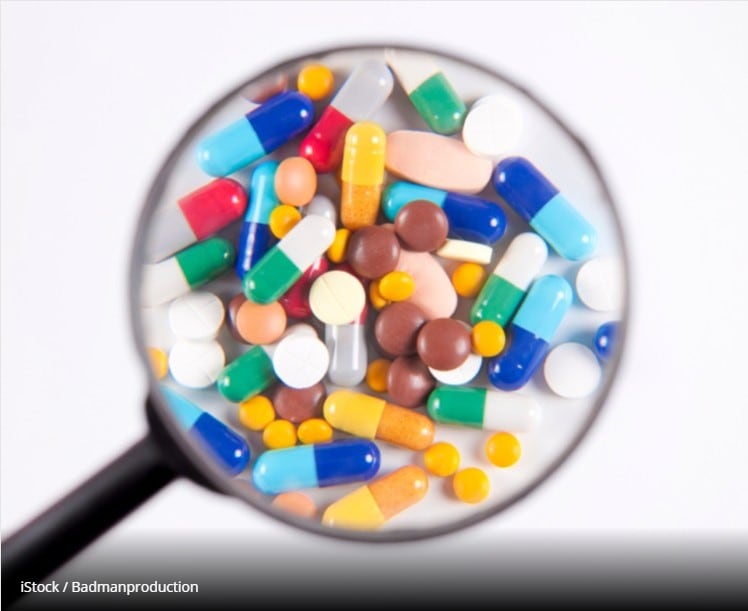The Authority (Mattilsynet) joins the chorus of similar statements warning against claims circulating online that supplements contribute to a stronger immune system, reduce inflammation or prevent infection with the coronavirus.
“There is no doubt that a good immune system is crucial when your body is fighting disease, says Karina Kaupang, director of the Food Safety Authority. “But there are no super foods or pills that can prevent you from being infected with coronavirus.”
According to Mattilsynet, the best way to protect against coronavirus is to follow the advice of the health authorities with importance placed on good hygiene in the kitchen when cooking.
“Wash your hands thoroughly with soap and water before cooking and before eating. If you do not have soap and water available, use hand disinfectant/hand alcohol,” she adds.
Kaupang’s words also extend to marketing approaches of supplement products that should arouse suspicion and serve as a warning sign to avoid and/or report the product in question.
Mattilsynet highlights the use of language or images that suggest the product can prevent or cure coronary infection as something to cast doubt on.
Also, any reference to self-proclaimed doctors, health professionals, experts or other unofficial sources who say that the product can prevent or cure coronary infection.
The Authority also warns of products referring to names or logos of authorities, official experts or international institutions that have approved protective or curative claims, without providing any link or references to official documents.
‘Available only today’ & ‘Sold out quickly’
Other warning signs include the use of claims such as "available only today," "sold out quickly," etc as well as the price point, which may be more expensive when compared to similar products, due to claims the product will prevent or cure coronary infection.
The advice is in line with recommendations made by the Advertising Standards Authority (ASA), who are in the midst of investigating advertisements for products with a claim regarding coronavirus attached.
Regarding supplement efficacy in tackling the coronavirus, ASA states that while the selling of supplements is not illegal, what can be stated remains strictly regulated by rules limiting product claims to only those authorised on the EU Register of nutrition and health claims.
Additionally, foods and supplements are also prohibited from making any claims to prevent, treat or cure human disease.
In advice to advertisers, ASA says, “No ad should exploit an audience’s fear in order to mislead them into buying a product.
“An appeal to fear to encourage prudent behaviour or to discourage dangerous or ill-advised actions may be considered justifiable; however the fear likely to be aroused should not be excessive.”
Guy Parker, chief executive of the ASA adds “Consumers who see ads, whether online, in newspapers, social media, posters or elsewhere, that claim to offer cures or treatments for coronavirus should be highly sceptical.
“We encourage anyone who sees these types of claims to pause, think and report it.”
Equally impactful is the warning given from the UK’s National Trading Standards, who highlight the vulnerability of some to ‘scam’ products such as supplements and anti-virus kits that falsely claim to cure or prevent the virus.
Doorstep pressure
“In some cases, individuals may be pressurised on their own doorsteps to buy anti-virus kits or persuaded into purchasing products that are advertised on their social media feeds,” they say.
“In addition, some call centres that previously targeted UK consumers with dubious health products are now offering supplements that supposedly prevent COVID-19.”
“National Trading Standards is warning people to remain vigilant following a rise in coronavirus-related scams that seek to benefit from the public’s concern and uncertainty over COVID-19.”
Responding to an unlawful sale of ‘Antivirale Manuka’ supplements amongst other products from a Naples-based website, Italy's Competition and Market Authority (AGCM) says, “The adoption of an emergency measure was deemed essential in order to stop the spread of an extremely serious practice, such as to make the intervention of the Authority indifferent.
“The Authority considers the methods used to promote these products are deceptive and aggressive, as the site takes advantage of consumers’ ability to assess the situation due to the ever-changing increase in the number of subjects infected by COVID-19.”
Currently, the European Food Safety Authority have not approved any claim for a food or food component in Europe to be labelled as protecting against infection.
The Authority also said last month that there was currently no evidence that food was a likely source or route of transmission of the virus.




